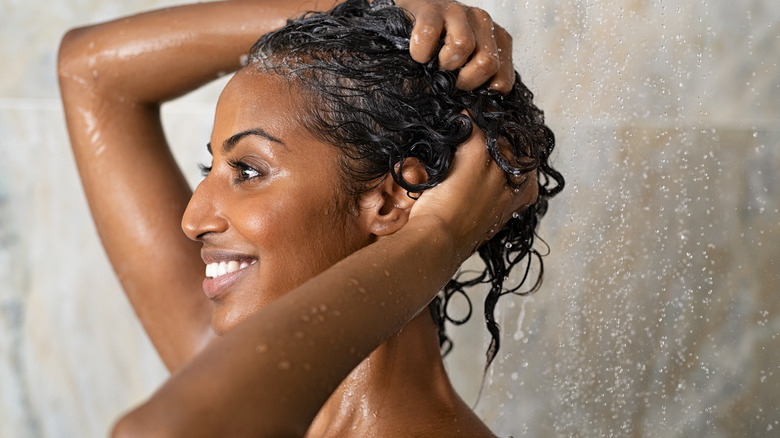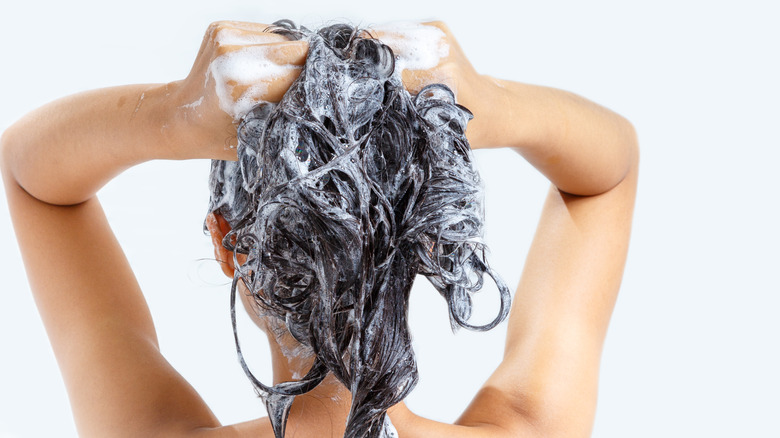Is Sulfate-Free Shampoo Actually Better Than Regular Shampoo?
If you've perused the haircare aisles, you've probably seen a large jump in the natural, sulfate-free shampoos available now. Thanks to marketing tactics, you may think sulfate-free shampoo is the best option, hands down. But according to hair experts, it may not necessarily be the way to go.
Sulfates make shampoo bubbly as you lather up, attracting oil and water and removing dead skin cells from your scalp. The most commonly listed sulfates on your shampoo bottles are usually sodium laureth sulfate, sodium lauryl sulfate, and ammonium laureth sulfate (via Self).
This trio gets a bad reputation because they can strip your hair of its natural oils, potentially making it dry and brittle. Sulfates can also irritate the scalp of those with sensitive skin, causing redness and itchiness.
So should you ditch sulfates in your shampoo? Contrary to popular belief, it's not a one-size-fits-all rule. Sulfates work well to deep clean the scalp and may be beneficial to those with thick hair that feels heavy (via Refinery 29). For those people, the result is hair that feels more lightweight and is easier to manage.
Hair types that should stick with sulfate-free shampoo
Another consideration is the amount of sulfates your hair is exposed to. For the most part, there is minimal amounts of sulfates in hair care products. Many shampoos typically contain conditioning and caring agents to promote necessary cleansing and hair nourishment to battle any dryness, experts tell Refinery 29.
However, there are some instances where sulfate-free shampoo may be the way to go. People with dyed, frizzy, fine/delicate, or kinky hair should consider sulfate-free shampoo due to the harsh chemicals potentially stripping color out and eliminating moisture, according to Self. Those with sensitive skin types or conditions like eczema may also want to skip regular shampoo.
For many people, regular shampoo may work just fine. Experts say you can also use a variety of products, mixing in deep cleansing with more natural, sulfate-free options to see what your personal preference is. If you have questions about your hair type or the types of products you should be using, your hair stylist can always weigh in.


